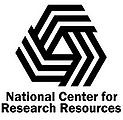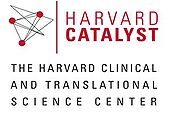Difference between revisions of "Events:RSNA CTSA 2009"
From NAMIC Wiki
(→Agenda) |
RandyGollub (talk | contribs) |
||
| Line 4: | Line 4: | ||
Image:Catalyst_logo_final.jpg|[http://catalyst.harvard.edu Harvard CTSC] | Image:Catalyst_logo_final.jpg|[http://catalyst.harvard.edu Harvard CTSC] | ||
</gallery> | </gallery> | ||
| + | |||
| + | |||
| + | == Logistics == | ||
| + | |||
| + | |||
| + | '''RSNA, McCormick Place'''<br> | ||
| + | Date: Monday November 30, 2009<br> | ||
| + | Time: 2:30 - 4:00 PM<br> | ||
| + | Location: IA21<br><br> | ||
=Objectives= | =Objectives= | ||
Revision as of 18:40, 23 October 2009
Home < Events:RSNA CTSA 2009
Contents
Logistics
RSNA, McCormick Place
Date: Monday November 30, 2009
Time: 2:30 - 4:00 PM
Location: IA21
Objectives
- to enhance interpretation of DICOM images through the use of 3D visualization and analysis
- to gain experience with interactive, quantitative assessment of complex anatomical structures and functional images
- to present current directions of quantitative imaging as a biomarker in clinical trials
Upon completion of this course, participants should be able to
- Describe the methods used for basic analysis of quantitative imaging parameters
- Describe the principles of image registration, segmentation, and volume measurement, and select and use appropriate software for 3D reconstruction
- Identify key analysis and acquisition requirements for multi-center quantitative studies
- Evaluate the impact of quantitative analysis methodology on their research interest
Agenda
- 15 min (Kasia Macura): Overview of imaging biomarkers and their use in clinical trials
- 15 min (Randy Gollub): Generic principles of image registration, segmentation, visualization (technical aspects)
- 60 min (Jeff Yap+ others): Description and hands-on interactive demo for each of the imaging biomarkers and requirements for standardized acquisition in multi-center trials (e.g. RSNA QIBA)
- Hands-On: Volumetric MR analysis: tumor growth anaysis and measurements (~10 minutes)
- Hands-On: FDG-PET/CT (pre/post-therapy whole-body imaging with SUV quantification) (~10 minutes)
- DCE-MRI (~10 minutes)


